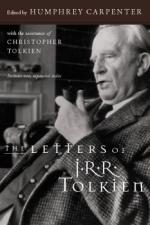|
This section contains 1,345 words (approx. 5 pages at 300 words per page) |

|
Tolkien is a Catholic and an Anglo-Saxon scholar, and the theology of his work is an extraordinary synthesis of heroic northern myth and Christian promise. Tolkien believes in Providence, both in and out of his fiction. He never mentions chance without a pious parenthesis—"if such it be"—yet he also believes, as he suggests the author of Beowulf believed, that within Time the monsters win. "We have fought the long defeat," Tolkien's Elf-Queen says, and the elves effectively leave the earth. God, in other words, is pulling his punches, to see how we make out against Sauron and his ilk. The treats come later, in the islands of the blessed.
This view accounts, I think, for two things in Tolkien's work. First, the fascination with the journey—not only in The Hobbit and The Lord of the Rings passim, but also in the rather thin stories, Leaf...
|
This section contains 1,345 words (approx. 5 pages at 300 words per page) |

|


